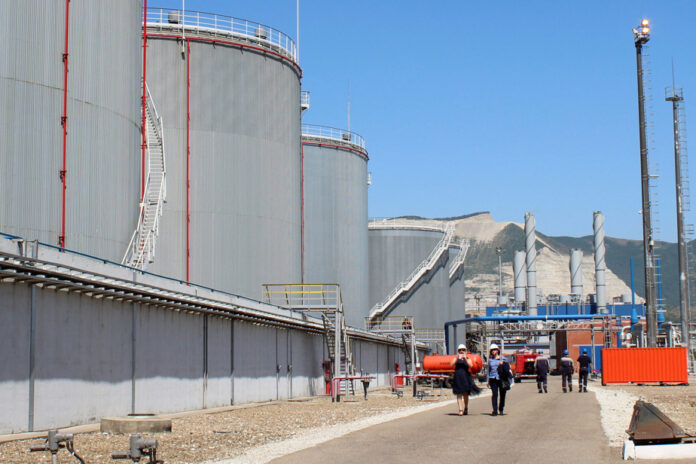(Vienna) After a postponement due to disagreement, several OPEC countries announced on Thursday that they would further slash their oil production in 2024, with one objective: to halt the recent fall in prices.
Once again, the efforts are mainly supported by the two pillars of the alliance of black gold producers, Saudi Arabia and Russia.
Riyadh is thus extending its cuts of one million barrels per day (bpd) until “the end of the first quarter of 2024”, according to a press release from the Ministry of Energy published after a videoconference meeting of ministers of the group.
Moscow, for its part, is strengthening its measure to reduce exports over the same period, increasing from 300,000 to 500,000 barrels per day, announced Deputy Prime Minister responsible for Energy Alexandre Novak.
Among the 23 members, other countries, such as the United Arab Emirates, will also make smaller cuts. Kuwait, Kazakhstan, Algeria and Oman also, reported the Bloomberg agency.
The markets reacted with disappointment to these voluntary gestures and the absence of a collective agreement from OPEC.
Around 12:30 p.m. (Eastern time), the price of Brent, the European benchmark for crude, fell by 0.31% to 82.84 dollars per barrel, while that of WTI, its American equivalent, fell by 2.47 %, at $75.94.
Initially scheduled for Sunday in Vienna, the meeting was postponed amid discord.
Saudi Arabia, which is making the bulk of the efforts, has indeed had difficulty convincing African countries to share the burden.
Among the holdouts, Angola and Nigeria “want to increase their production quotas” in order to increase their oil windfall, a source of precious foreign currencies, according to a source close to the discussions.
These two countries have not digested the conclusions of the last meeting, in June, which noted a reduction in their production objectives, after years of underinvestment.
Conversely, the United Arab Emirates had been authorized to further open the crude tap in view of their significant reserve capacity.
Since the end of 2022, the alliance has kept around 5 million barrels per day underground, playing on the scarcity of supply to try to raise prices undermined by economic uncertainty against a backdrop of high interest rates.
It had initially slashed some 2 million barrels, on the occasion of the reunion of the 23 members in Vienna, after a long series of virtual meetings due to the pandemic.
Then, last May, nine members, including the Saudis and Russians, announced surprise voluntary cuts for a total of 1.6 million barrels per day.
And “Saudi treat”, according to the expression of the kingdom’s Minister of Energy, Prince Abdulaziz bin Salman, Riyadh closed its taps even more a month later, a decision extended therefore this Thursday.
Despite previous announcements, the two crude benchmarks have fallen in recent weeks, even if they remain above the average of the last five years.
Prices are now moving around the symbolic mark of 80 dollars per barrel, after a short-lived surge in Brent to almost 100 dollars at the end of September and far from the 140 dollars reached following the Russian invasion of Ukraine.
Demand appears fragile, between concerns about the economy of China, the world’s leading importer of crude oil, whose post-COVID-19 recovery is proving much more sluggish than expected, and mixed signals coming from Europe and the States. -United.
On the supply side, crude oil production in the United States and Brazil has reached record levels, causing a shift in the balance of power. OPEC, which accounts for around half of global production, “no longer has the control over the market that it once had,” underlines Neil Wilson, analyst at Finalto.
The alliance, born in 2016 in reaction to the challenges posed by American competition, however hopes to be joined by Brazil from January 2024.
“This is a historic moment for Brazil, which opens a new chapter in dialogue and international cooperation on energy,” greeted Minister Alexandre Silveira de Oliveira, present at the meeting.
But the Ministry of Energy tempered this announcement, specifying in a press release sent to AFP that the ministry was “analyzing the question”.















